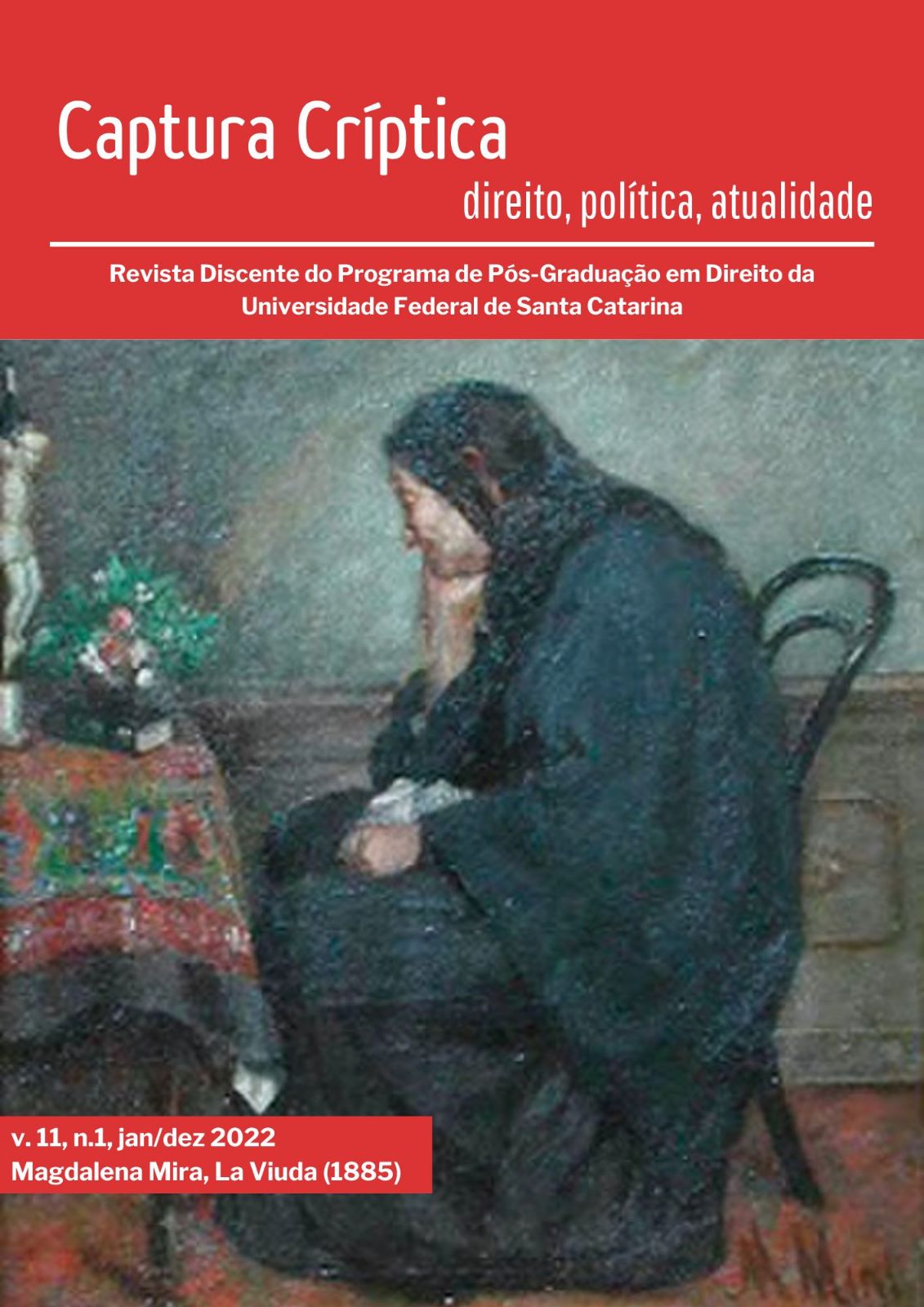El modelo extractivista y sus consecuencias socioambientales en América Latina: la dependencia de commodities
Palavras-chave:
Extractivismos, modelo exportador de especialización productiva, consecuencias socioambientales, dependencia, exportación de commodities.Resumo
La idea que permea ese ensayo es abordar y problematizar el modelo económico basado en los extractivismos y en la matriz exportadora de especialización productiva, modelo ese predominante, de forma general, en toda América Latina. Se puntuará también sobre el local que América Latina ocupa en la división internacional del trabajo, desde la invasión y conquista de nuestros territorios por Europa a partir de 1492, como productores de materia-prima, con actividades que presuponen la extracción y explotación de los bienes naturales. Especialmente, la intención es apuntar las consecuencias ecológicas y socioambientales a la biodiversidad que implica la manutención histórica de los extractivismos, apuntando esa herencia maldita como algo que suele extrapolar ideologías políticas, en el sentido que, tanto gobiernos políticamente a la izquierda o la derecha, no solamente no han debilitado sino que han impulsado una supuesta vocación primario-exportadora de los países latinoamericanos. Así, la intención es brindar una breve reflexión sobre el tema que parte de la constatación de la dependencia de la exportación de commodities que acomete gran parte de los países de Nuestramerica, en mayor o menor medida, bien como sus respectivas consecuencias socioambientales y a la biosociodiversidad. Se utilizó metodología deductiva, en investigación de tipo teórica y descriptiva, con el uso de material bibliográfico diversificado, así como el uso de índices económicos oficiales para fines de análisis de objetos.
Referências
BARREDA MARÍN, A. Anatomía de la decadencia de la relación capitalista entre la sociedad y la naturaleza. In: Barreda Marín, A., Valencia, L. E., Espinoza Hernández, R. (coords.) Economía política de la devastación ambiental conflictos socioambientales en México. México: UNAM-Editorial Ítaca, 2018.
BARTRA, A. El hombre de hierro. Límites sociales y naturales del capital en la perspectiva de la Gran Crisis. México: Editorial Itaca, 2014.
ESCOBAR, A. Sentipensar con la tierra. Nuevas lecturas sobre desarrollo, territorio y diferencia. Medellín: Ediciones UNAULA, 2014.
GUDYNAS, E. (2011). Más allá del nuevo extractivismo: transiciones sostenibles y alternativasal desarrollo. In: Wanderley, F. (coord.) El desarrollo en cuestión: reflexiones desde América Latina. La Paz: Plural Editores / UMSA, 2011.
ONU BRASIL. Aumenta peso das commodities para economia do Brasil, revela relatório da ONU. [s.l.], 2017. Disponible en: <https://nacoesunidas.org/aumenta-peso-das-commodities-para-economia-do-brasil-revela-relatorio-da-onu>. Acceso en: 11 mar. 2019.
OSORIO, J. América Latina: o novo padrão exportador de especialização produtiva – estudo de cinco economias da região. In: Ferreira, C.: Osorio, J.; Luce, M. (orgs.). Padrão de reprodução do capital. Sao Paulo: Boitempo. Edición Epub, 2012.
RAJÃO, R., et al. The rotten apples of Brazil's agribusiness. Science, vol. 369, n. 6501. 2020.
SVAMPA, M. “Consenso de los commodities, giro ecoterritorial y pensamiento crítico en América Latina.” In: Movimientos socioambientales en América Latina. Revista del Observatorio Social de América Latina, año XIII, nº 32. Buenos Aires: CLACSO, 2012.
SVAMPA, M. «Consenso de los Commodities» y lenguajes de valoración en América Latina. Revista Nueva Sociedad, n. 244, p. 30-46. Buenos Aires: Nueva Sociedad, 2013.
SVAMPA, M. Las fronteras del neoextractivismo en América Latina. Conflictos socioambientales, giro ecoterritorial y nuevas dependencias. Guadalajara: CALAS, 2019.
UNCTAD - Conferencia de las Naciones Unidas sobre Comercio y Desarrollo. State of Commodity Dependence 2019. 2019a. Disponible en: <https://unctad.org/en/PublicationsLibrary/ditccom2019d1_en.pdf>. Acceso: 13 de abril de 2020.
UNCTAD - Conferencia de las Naciones Unidas sobre Comercio y Desarrollo. Commodities and Development Report 2019: Commodity Dependence, Climate Change and the Paris Agreement. 2019b. Disponible en: <https://unctad.org/system/files/official-document/ditccom2019d3_en.pdf>. Acceso en 22 de marzo de 2021.
Downloads
Publicado
Edição
Seção
Licença
Copyright (c) 2022 Emanuela Gava Caciatori

Este trabalho está licenciado sob uma licença Creative Commons Attribution-NonCommercial-NoDerivatives 4.0 International License.
Os trabalhos publicados na Revista Captura Críptica estão sob a Licença Creative Commons Attribution-NonCommercial-NoDerivatives 4.0 International.










